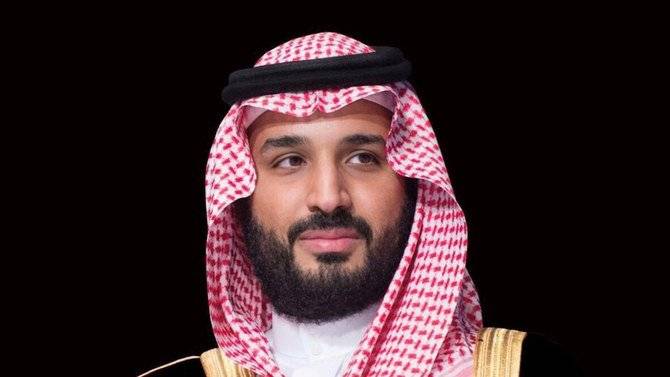Gross domestic product expanded 11.8% in the second quarter, when the non-oil economy grew 5.4% and is now larger than at the end of 2019, before the pandemic struck…reports Asian Lite News
The more than 300 apartments in Abdulsalam Almajed’s new Riyadh complex sold in just a month for cash, without him even having to advertise.
This is Saudi Arabia, the world’s biggest exporter of oil, so it’s no surprise the property market is red-hot as income from a spike in energy prices flows through the economy.
But Almajed says the scramble for the 1-million-riyal ($266,400) homes reflects something else, too: the social and economic shift that’s reshaping the kingdom, accelerated by the crown prince’s overhaul program.
“There’s a change in mindset,” said Almajed, who heads family-owned developer Almajdiah Residence, as some Saudis embrace the more open style of living his firm caters to. “Today there’s beautiful creativity in Saudi designs.”
Ten years ago, many property owners wouldn’t even rent to women, who needed approval of a male guardian for many life decisions. Today, women are entering the labor market in greater numbers, and 30% of Almajdiah’s buyers are female, acquiring investment properties or a home of their own.
They’re helping lift an economy transformed by energy markets. As much of the world is fretting about spiraling inflation fueled by Russia’s war in Ukraine and potential recessions, oil averaging more than $100 a barrel this year means Saudi Arabia’s economy is the fastest growing in the Group of 20.
Gross domestic product expanded 11.8% in the second quarter, when the non-oil economy grew 5.4% and is now larger than at the end of 2019, before the pandemic struck.
State energy company Saudi Aramco has reported the biggest quarterly adjusted profit of any listed company globally. Billions of dollars are flowing into Saudi coffers and raising state investments, boosting sentiment in a private sector reliant on government contracts.
Capital spending jumped an annual 64% in April to June, as the kingdom embarks on a building spree including malls and parks as well as grandiose plans for a new city built from scratch and a luxury tourism development on the Red Sea. Overall spending was 16% higher, even though this year’s initial budget forecast it would fall.
Summers typically send Saudi elites off to cooler climes in Europe, but Riyadh’s newest high-end restaurants are packed. At Coya, a Latin American chain, the most popular dinner seatings — 8:30 to 9 p.m. — are fully booked a month ahead.
Combined cash withdrawals and points of sales transactions, an indicator of consumer activity, have bounced back, increasing an annual 9% in June after a record high in March. Inflation last month was 2.7%, about a third of the rate in the US or eurozone.
The Finance Ministry’s trying to break the habit of oil-tracking splurges and cutbacks, flowing stimulus through sovereign funds and into longterm projects like electric-vehicle manufacturing and tourism.
“If there was another collapse in oil prices, there will again be slowing down in activity,” said Monica Malik, chief economist at Abu Dhabi Commercial Bank. “But a number of positive factors are coming together at this point,” reported Bloomberg.
Almajdiah caters to affluent professionals who want open-plan homes with abundant natural light. Many Saudis previously preferred houses with high walls and tiny windows to preserve privacy. But the social opening, along with smaller families and tighter budgets, is changing that.
The developer’s newest complex is built around shared courtyards and features cafes, gyms and a nursery.
The style echoes high-end housing in Dubai, the regional hub Prince Mohammed wants to compete with, announcing plans to double Riyadh’s population and attract millions of expatriates.
That’s key to Almajed’s optimism. The more people, the more apartments they’ll need, he said.
Saudi Arabia is likely to be one of the world’s fastest-growing economies this year as sweeping pro-business reforms and a sharp rise in oil prices and production power recovery from a pandemic-induced recession in 2020. Gross domestic product is expected to expand by 7.6 percent, the fastest growth in almost a decade, according to an IMF report.
Despite higher prices for imported commodities, inflation will remain contained at 2.8 percent in 2022 as the central bank tightens policy in line with the US Federal Reserve. Public finances and the external position will strengthen substantially thanks to increased non-oil revenue and higher proceeds from oil exports. Reserve buffers will remain ample.
Maintaining control of public spending despite higher oil proceeds will be important, but there is scope for more targeted social spending. Improvements in tax policy and revenue administration to raise more taxes from non-oil activities would help support fiscal consolidation.
Managing oil revenues in a sustainable manner, so that spending does not rise and fall in line with the price of oil, would promote fiscal sustainability and prevent a return to previous oil-driven cycles of boom and bust. So too would far-sighted budget planning and policies to diversify the economy.
Reforms to energy prices so that domestic fuel prices converge with international prices would generate fiscal savings as well as support the authorities’ climate objectives, set out in the Saudi Green Initiative. Ongoing efforts to strengthen social safety nets through targeted schemes would protect the vulnerable from higher energy bills.
With strong central bank supervision, the financial sector remains resilient and systemic risks are low. Increases in interest rates are expected to have only a limited impact on the Saudi economy in an environment of high oil prices and strong liquidity. Continued improvements to the framework for financial sector regulation and sustained monitoring of rising mortgage lending are important to prevent risks from materializing.
Saudi Arabia’s sovereign wealth fund, the Public Investment Fund, should continue to focus on high returns and greater private sector involvement, including as it continues to implement “Giga projects”.
ALSO READ-UAE Vice President praises role of humanitarian cadres

Leave a Reply